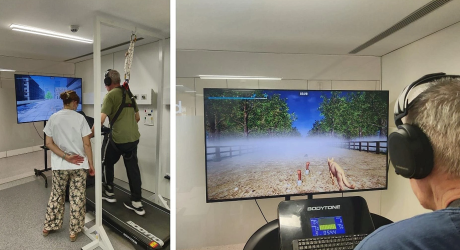The use of telemedicine by midwives during the pandemic enabled childbirth and postpartum courses
This is one of the conclusions of the study carried out by the GRECS research group on the perceptions of primary care midwives on the use of telemedicine during the COVID-19 pandemic in Spain
The implementation of telemedicine during the COVID-19 pandemic made it possible to maintain care for pregnant women and the postpartum period given the limitations imposed on attendance at the health centre. This situation has made it possible to establish the importance of the midwifery team in forming strategies for the use of telemedicine in a hybrid format, online and face-to-face. This is one of the conclusions of the study ‘Perceptions of primary care midwives on the use of telemedicine during the COVID-19 pandemic in Spain’ led by the health care research group (GRECS) of the Biomedical Research Institute of Lleida (IRBLleida).
“The use of telemedicine has made pregnancy and puerperium care possible, revealing advantages that allow us to consider new forms of care and follow-up that could be applicable to other vulnerable populations or those with special needs,” explained the first author of the article and researcher at the Department of Nursing and Physiotherapy at the University of Lleida and the GRECS research group, Mariana Loezar Hernández.
The study was conducted in four autonomous communities (Catalonia, Madrid, the Canary Islands and Castilla y León) between July 2021 and February 2022. A total of 15 midwives (13 women and 2 men) who worked in pregnancy care during the COVID-19 pandemic with a minimum of two years’ experience were interviewed. Staff from the Centro de Investigación Biomédica en Red en Fragilidad y Envejecimiento saludable (CIBERFES) and the Centro de Investigación Biomédica en Red de Epidemiología y Salud Pública (CIBERESP) of the Instituto de Salud Carlos III, the Universidad Autónoma de Madrid, and the Instituto de Investigación Sanitaria Gregorio Marañon de Madrid collaborated in the study.
Despite the positive aspects, the study also concludes negative aspects of telemedicine. The midwives perceived that, despite the adaptation to the care received, the lack of face-to-face attendance caused pregnant women to feel neglected. They also perceived that there was an increase in loneliness among women both during and after pregnancy, which added to the distress and fear due to the uncertainty of the pandemic. “Midwives had to deploy strategies to promote humanised care and supplement face-to-face parenting education,” said the researchers.
“It is crucial to take midwives into account both in the formulation of strategies for the use of telemedicine in hybrid format and in their training needs. We suggest the implementation of training programmes in digital competences both at the level of professionals and the general population,” said UdL lecturer and researcher Erica Briones.
The research has been made possible thanks to funding from the University of Lleida’s JADE PLUS research staff in training.
Article: M. Loezar-Hernández, E. Briones-Vozmediano, M. Gea-Sánchez et al., Percepciones de matronas de atención primaria sobre el uso de la telemedicina durante la pandemia COVID-19 en España, Enfermería Clínica, https://doi.org/10.1016/j.enfcli.2023.09.002




